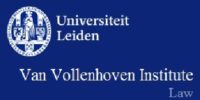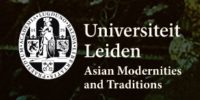19 & 20 May 2016 | Kasteel Oud-Poelgeest | Oegstgeest | The Netherlands
Organized by KITLV in collaboration with Leiden University’s Van Vollenhoven Institute and the Asian Modernities and Traditions program (AMT), and the Norwegian Centre for Human Rights at the University of Oslo (NCHR)
On 19 and 20 May 2016 this workshop discussed a new type of village studies in Indonesia. The 2014 Village Law will likely cause a considerable change in the character of village governance and leadership in the coming years. Overall questions are: what will be the impact of Indonesia’s Village Law on the character of villages and their role in Indonesia’s economic and political development? How can we study this change across Indonesia in a comparative manner? What can we learn from the history of village governance in the context of change processes taking place in rural areas?
More than fifty researchers submitted an extended abstract for this workshop in March. The workshop organizers selected 30 papers with a preference for those reporting on empirical research in villages, for example on changing village leadership, the politicization of village life, or state-society relations at village level. The workshop took place at the castle Oud Poelgeest in Oegstgeest (close to Leiden) where around 50 people attended, with participants from Japan, USA, Australia, Norway, the UK, the Netherlands and, the majority, from Indonesia.
You can find the program with all the speakers, and the participant speakers’ biographies through this website. The full report includes summaries of all presentations and discussions.
Suggestions for further research:
1. The image of the village in Indonesia per 2016. Policy, including the Village law seems inspired by two main images of the village: the romantic version of the closed corporate community( gotong royong, musyawarah and kebersamaan), and the image that shows the function of the village head as a benign father. Both tend to produce a lack of control and accountability instruments. The village on Java is the source of inspiration for these two images. The image of the desa seen from the perspective of its inhabitants is usually different: administrative unit providing services and that has a budget for which groups in the village compete. Social and class differentiation appears clearly from such internal perspective, with attention for power imbalances, conflict and politicization. During the workshop new distinctions were mentioned: “independent villagers”, rural versus peri-urban villages; the latter could better be characterized as ‘socially urban spaces’ (E. Thomson). What is the most suitable definition or characterization of the village for understanding the impact of the village law?
2. Village Law research tends to focus on the short term, which makes it look like a dramatic change in policy. If positioned in a longer historical context, the changes get more perspective. Various papers in this workshop paid attention to the historical context, showing the ‘swinging pendulum’ in policy making between more autonomy for villages and more state control. A historical perspective also draws the attention to the long history of clientelism, and misuse of power, which contradicts the romantic image of the village. What is (in each case) the most relevant historical context for understanding the processes of change occurring, and how does the village law implementation relate to that?
3. The aim of the village law is among others to increase prosperity in the rural areas and reduce poverty. The large village budget (dana desa) is a means for reaching that goal. However, there is no analysis of the causes of rural poverty. These might be beyond the powers and territory of the villagers, more structural, and hard to solve with just an annual village budget. Additionally, reports often treat the poor as if they were an organised category of villagers. They are not. A characteristic of being poor is exclusion, which makes ‘participation of the poor’ a policy challenge and concept in need of explanation.
4. In Village Law related research we tend to lose sight of higher levels of government and the larger economy in which the village economy is situated. What can realistically be accomplished at village level? What is the rationale of people living and working in a state dependent economy, a savanna economy, an peri-urban industrial economy, or in a tourism dominated economy? How does the district government in all these varying areas influence the implementation of the village law?
5. What explains variation between villages? Various papers during this workshop show variety of situations related to implementing the village law WITHIN regions, even within the same district (Maluku, Papua, Sumba, South Sulawesi, Central Java). What are the most important variables for analysing this variety? How can we avoid that regional generalizations flatten the image of the rural areas into homogeneous entities?
6. Studies of village leadership tend to focus on the village heads. A more general question to address first would be: what kind of leaders would you (insert which interest group) need to have? Well connected men or poorly connected women? Female leaders, but what if they are just part of the village elite? What is the recruitment process of village leadership? Is it enough to study village head elections?
7. Comparison with other countries regarding the experiences with decentralization policies up to the village level is important for anyone studying the rise, character and potentials of the new village programme and regulations in Indonesia.
Proposed follow up activities
- A similar conference or workshop in 7 or 8 years from now (when we know the impact of the village law) or bi-annually (to update each other and have similar inspiring discussions).
- Continue the network that has been composed during this workshop:
o Through a communication forum via social media – See the facebook group here >>
o Providing opportunity for thematic discussions
o For sharing knowledge, reports, publications, news etc
o For learning how to access World bank data related to this subject
o Pool for setting up new research
o For updating our research agendas
- Publications based on the papers of this workshop. Preferably open access, and quick publishing
- Collaboration in interdisciplinary research programmes, also with practitioners.
- Applied research on how to establish legal complaint mechanisms
Program
19 May
Morning session chair: Henk Schulte Nordholt
9:00 – 9:10 Opening & welcome by Prof. Henk Schulte Nordholt (Head of Research, KITLV)
9:10 – 9:20 Introduction to the workshop by Jacqueline Vel and Ward Berenschot
9:20 – 9:45 Keynote: Prof. em. Keebet von Benda-Beckmann (Max Planck Institute for Social Anthropology, Halle/Saale, Germany), “The prolonged process of decentralisation. West Sumatra between 1999 and 2009”
9:45 – 10:00 Keynote: Drs. Aferi S. Fudail M.Si (Director Planning and Village Administration, the Directorate General of Village Administration, Ministry of Home Affairs) “Research priorities for international academic research on themes related to the 2014 Village Law”
10:00 – 11:15 The village law and policy making
Discussant: Prof. Gerry van Klinken
– Adriaan Bedner (KITLV/VVI): “The creation of Indonesia’s village law: A multi-stakeholder process”
– Aksel Tomte (NCHR): “Role of NGOs as facilitators – caught in the national politics of implementation’
– Yulia Sri Sukapti (Institute for Ecosoc rights): “Implementing the village law: Challenges from a human rights perspective”
– Bambang Soetono (World Bank, Jakarta): “ Village facilitation assessments”
11:15 – 11:30 Coffee break
Chair: Jacqueline Vel
11:30 – 12:45 Village law and access to state budgets
Discussant: Prof. Olle Törnquist (University of Oslo)
– Yulia Sari (Crawford School ANU, Canberra): “Village leadership and direct fund channeling: lesson learned from PNPM Mandiri RESPEK in Papua, Indonesia”
– Ward Berenschot (KITLV): “Village-state interaction in democratizing Indonesia: Exploring regional variation”
– Wasisto Raharjo Jati (LIPI): “Village-district-province conflicts about assets and poverty alleviation”
12:45 – 14:00 Lunch
Afternoon chair: Ward Berenschot
14:00 – 15:15 Village law and land conflicts
Discussant: Rebakah L. Daro Minarchek (Cornell University)
– Marieke Abelen (ITC, University of Twente) “Images of land and village; the relation between land tenure and village life in a Javanese migrant rural community in the 21st century.”
– Darmanto Simaepa (Leiden University): “Imagining an adat village in
Mentawai Island, West Sumatra”
– Rosa de Vos (Wageningen University): “Mapping village land in context of
oil palm plantation expansion in West Kalimantan”
– Logan Hamilton (Oxford University): “Political decentralisation as a
driver of change in Indonesian village level forest governance institutions and practices”
15:15 – 15:30 Tea break
15:30 – 17:00 Adat and village law
Discussant: prof. Adriaan Bedner (KITLV/VVI Leiden)
– Agung Wardana and Carrol Warren (Murdoch University): “Adat and Dinas: Balinese villages and state-society relations under the 2014 Village Law”
– Willem van der Muur (Leiden University): ‘The role of adat in village leadership in contemporary South-Sulawesi”
– Nurul Firmansyah (Huma): “Customary village model or administrative village model”
– Tony Rudyansjah (Universitas Indonesia, Jakarta): “Sociality of humanity and regional autonomy in two villages on Seram, Maluku”
17:45: Departure of bus to restaurant Buddhas, Botermarkt 20, Leiden
For more information: [email protected]
Program
20 May
Chair: Ward Berenschot
9:00 – 9:30 Keynote: Prof. em. Ben White (ISS, The Hague): “Indonesian rural communities in long-term perspective: competing visions and discourses in research and policy”
9:30 – 10:45 Rural economic development
Discussant: Lily Hoo (World Bank)
– Rambu L K.R Nugrohowardhani (Wira Wacana Sumba Christian University): “The 2014 Village Law and Rural Economic Development in the Eastern Part of Indonesia”
– Deddy Winarwan (Ministry of Home Affairs: village development division): “Revitalization of village governance and national development”
– Thijs Schut (University of Amsterdam): “The Village Law: Opportunities and Challenges for Rural Educated Youth”
10:45 – 11:00 Coffee break
11:00 – 12:15 Village governance
Chair: Gerry van Klinken
Discussant: Yulia Sari (ANU, Canberra)
– Takeshi Ito (Sophia University, Japan): “Layers of power: Development, institutional reform, and subjectivity in village Indonesia”
– Lily Hoo (World Bank, Jakarta): ‘Village governance and community empowerment study (“Sentinel Villages” Study)”
– Jacqueline Vel (VVI/KITLV): ‘More villages, more money: The politicization of village life in Sumba”
12:15 – 13:30 Lunch
Afternoon Chair: Adriaan Bedner
13:30 – 14:45 Village leadership
Discussant: Dr. Tony Rudyansjah (Universitas Indonesia, Jakarta)
– Mohammed Rozie Utama: “Village representative boards (BPD) as an implementation of representative democracy at the grassroot in Indonesia”
– Prio Sambodho (UvA/KITLV) “Village level democratization in Indonesia: Towards popular participation or more benevolent elites?”
– Irfani Darma (ADB and KOMPAK program DFAT) “From the National Community Empowerment Program (PNPM) to the Village Law: Transition, Continuity, and Changes”
– Rendy Adriyan Diningrat (SMERU): ‘The birth of the village law: Where are the marginalized groups?”
14:45 – 15:00 Coffee break
15:00 – 16:15 Village law and female leadership
Discussant: Dr. David Kloos (KITLV)
– Tyas Retno Wulan (Jendral Sudirman University Indonesia): “Migrant workers caring villages (DESBUMI): Village fights against government absence in protecting Indonesian migrant workers”
– Yando Zakaria (Karsa): “Women who try to change the village”
– Mies Grijns (VVI): “Women, state funds and the new village law”
16:15 – 17:30 Wrapping up and next steps
For more information: [email protected]

Prof. dr. Keebet von Benda-Beckmann is an associate of the Department of Law & Anthropology at the Max Planck Institute for Social Anthropology in Halle/Saale, Germany, and was formerly head of the ‘Project Group Legal Pluralism’ (2000-2012) at the same institute. Since 2003 she has been an Honorary Professor of Legal Anthropology at the University of Leipzig and since 2004 Honorary Professor of Legal Pluralism at the Martin Luther University Halle-Wittenberg. She has carried out research in West Sumatra and on the Moluccan Island of Ambon (both in Indonesia) and among Moluccan women in the Netherlands. She has published extensively on dispute resolution, social security in developing countries, property and water rights, and decentralization, and on theoretical issues in the anthropology of law. Together with Franz von Benda-Beckmann and Anne Griffiths she co-edited Spatialising Law (Ashgate, 2009) and, with Franz von Benda-Beckmann and Julia Eckert, Rules of Law and Laws of Ruling: On the Governance of Law (Ashgate, 2009). Together with Franz von Benda-Beckmann she wrote Political and Legal Transformations of an Indonesian Polity (Cambridge, 2013).

Prof. dr. Ben White is emeritus professor of rural sociology at the International Institute of Social Studies, the Hague. He has worked extensively on rural development in west Java, as well as the political economy of land grabbing. His recent publications include Governing Global Land Deals (Wiley Blackwell 2013) and Agrarian Reform in Comparative Perspective (Brighten Press 2009).
Workshop venue
Kasteel Oud Poelgeest
Website …>>
Address:
Kasteel Oud-Poelgeest
Poelgeesterweg 1
2341 BC Oegstgeest
The Netherlands
How to get to Leiden?
The most convenient way to travel from Schiphol Airport to Leiden is by train. At Schiphol, the train station is situated underneath the Schiphol Plaza in the central hall of the terminal, where there are ticket desks and ticket machines.
Direct trains from Schiphol Airport to Leiden run every fifteen minutes and the journey takes around 20 minutes. A one-way ticket (enkele reis) costs € 5,80 and a day return (dagretour) costs € 11,80. Direct trains to Leiden run every fifteen minutes and the journey takes around 20 minutes.
More information can be found on the website of the Dutch Railways (Nederlandse Spoorwegen): http://www.ns.nl/en.
Taxi’s from Schiphol direct to the conference venue is expensive, it is around 100 Euro.
Travel by taxi from Leiden Central Station to the venue
Taxis and buses are located just outside the Station. The fare will be around 15 Euro to the workshop venue.
Public transport to venue
Every 15 minutes Bus 50 departs from the north side of the railway station in the direction of “Haarlem Station”. It is 5 minutes to bus stop ‘Oegstgeest, Marelaan’. From there it is 6 minutes walk to the Kasteel Oud-Poelgeest. You can buy a ticket in the bus, or buy an OV chipcard (https://www.ov-chipkaart.nl/apply-1/which-card-is-right-for-you/tourists.htm).
Health insurance
The organizers of the workshop are not responsible for any health costs of the participants during their journey to and stay in the Netherlands . Please check your health insurance for international coverage valid in Europe.
‘From the National Community Empowerment Program (PNPM) to the Village Law: Transition, Continuity, and Changes’, Irfani Darma (ADB and KOMPAK program DFAT)
‘Imagining an adat village in Mentawai Island, West Sumatra’, Darmanto Simaepa (Leiden University)
‘Mapping village land in context of oil palm plantation expansion in West Kalimantan’, Rosa de Vos (Wageningen University)
‘Migrant workers caring villages (DESBUMI): Village fights against government absence in protecting Indonesian migrant workers’, Tyas Retno Wulan (Jendral Sudirman University Indonesia)
‘More villages, more money: The politicization of village life in Sumba’, Jacqueline Vel (VVI/KITLV)
‘Political decentralisation as a driver of change in Indonesian village level forest governance institutions and practices’, Logan Hamilton (Oxford University)
‘Revitalization of village governance and national development’, Deddy Winarwan (Ministry of Home Affairs: village development division)
‘The 2014 village law and rural economic development in the eastern part of Indonesia’, Rambu L K.R Nugrohowardhani (Wira Wacana Sumba Christian University)
‘The birth of the village law: Where are the marginalized groups?’, Rendy Adriyan Diningrat (SMERU)
‘The village law: Opportunities and challenges for rural educated youth’, Thijs Schut (University of Amsterdam)
‘Village-district-province conflicts about assets and poverty alleviation’, Wasisto Raharjo Jati (LIPI)
‘Village facilitation assessments’, Bambang Soetono (World Bank, Jakarta)
‘Village leadership and direct fund channeling: lesson learned from PNPM Mandiri RESPEK in Papua, Indonesia’, Yulia Sari (Crawford School ANU, Canberra)
‘Village representative boards (BPD) as an implementation of representative democracy at the grassroot in Indonesia’, Mohammed Rozie Utama (Ministry of Home Affairs)
‘Women, state funds and the new village law‘, Mies Grijns (VVI)
‘Women who try to change the village‘, Yando Zakaria (Karsa)









